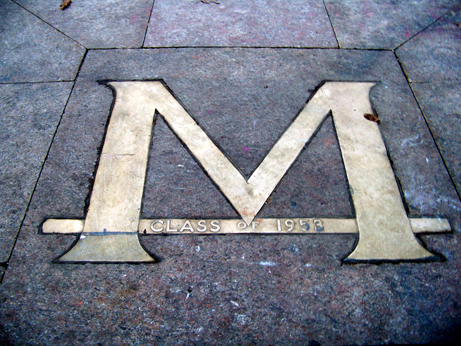Anti-Israel Leaders Impeached by University of Michigan Student Government
by Abigail Anthony
The student government at the University of Michigan, Ann Arbor voted to impeach its anti-Israel president Alifa Chowdhury and vice president Elias Atkinson, in part for “inciting violence.”
The motion to impeach, which passed 30 to 7, stated that Chowdhury had changed the password to the student government’s Instagram account without authorization, posted content on social media that “defamed” opposition members of the student government as “zionists,” shouted at a meeting, “menaced” elected student representatives, and additionally failed to execute the necessary duties of the office.
“President Chowdhury gravely endangered the security of students and the functioning of the Central Student Government,” reads the resolution. “[Chowdhury] threatened the integrity of the democratic system, interfered with the peaceful consideration of legislation, and imperiled a coequal branch of Government.”
Atkinson “acted in a manner grossly incompatible with self-governance and the rule of law,” the motion to impeach states, and further engaged in “inciting violence” by encouraging students to “pack” an assembly meeting, where they then committed “violent and destructive acts.”
Chowdhury and Atkinson were elected in spring 2024 and campaigned on the pro-Palestinian platform called “Shut It Down,” promising to withhold roughly $1.3 million in student-government funding for campus activities until the university agreed to anti-Israel divestment demands.
“Every dollar coming out of this university is blood money,” reads a social-media post by the Shut It Down group at the University of Michigan. “Student government cannot operate as usual as we witness the systematic murder of Palestinians. Student life cannot continue as normal when our tuition and labor are being used to fund a genocide.”
Affiliates of Shut It Down won 22 seats out of 45 in the assembly during the spring 2024 election, and Chowdhury and Atkinson won the executive ticket by roughly 1,000 votes. Less than 20 percent of students turned out to vote, according to the student-run newspaper.
“The election results spoke for themselves: a historic turnout with several [Shut It Down] representatives winning by massive margins,” the group wrote on social media. “Attempting to delegitimize the success of marginalized students of color, our Zionist opposition filed a frivolous lawsuit through the Central Student Judiciary. We persevered and prevailed.”
The elected members of the campaign delivered on their promise and successfully withheld funding. The student-government funding, however, comes from student fees (roughly ten dollars per student) and not the university’s endowment. Students became upset with the withholding of funds; student clubs and associations expressed frustration to the New York Times about the ability to pursue programming without funding.
However, in early October, the student government voted to reverse course and restore funding for campus activities. During that assembly vote, the student government also rejected a Shut It Down petition that would have sent its remaining budget of $440,000 to the Birzeit University’s “Rebuilding Hope” campaign in Gaza.
“The genocidal destruction unfolding in Gaza is not an event that stands apart from the structures of elimination that govern the logic of Zionist settler-colonialism, which is based on the eradication of the Indigenous people and its replacement with a settler population,” reads the Birzeit University’s Rebuilding Hope campaign website.
The petition failed with 22 votes against it and 16 in favor.
The elected members of the campaign delivered on their promise and successfully withheld funding. The student-government funding, however, comes from student fees (roughly ten dollars per student) and not the university’s endowment. Students became upset with the withholding of funds; student clubs and associations expressed frustration to the New York Times about the ability to pursue programming without funding.
Although the Shut It Down group had campaigned on divestment, the university had been clear that it would continue its “longstanding policy” of “shield[ing] the endowment from political pressures and bas[ing] our investment decisions on financial factors such as risk and return.”
In 2017, the members of the University of Michigan’s Board of Regents said in a statement, “we strongly oppose any action involving the boycott, divestment or sanction of Israel.”
In March, 2024, the university reiterated its stance and stated that it did not have any direct investments in any Israeli companies.
“We’ve asked the endowment managers,” a member of the Board of Regents said in 2024. “The endowment has no direct investment in any Israeli company. What we do have are funds that one of those companies may be part of a fund. Another statement that was made was that 6 billion dollars or roughly one third of our endowment is invested in these Israeli companies. I asked the endowment team about that and, in actuality, less than 1/10 of one percent of the endowment is invested indirectly in such companies.”
In response to calls for resignation and prior to the vote on the impeachment motion, the Shut It Down group issued a statement asserting that it sought to “dismantle” and not “maintain” the student government.
“Respectability politics and dialogue with individuals or institutions that are not only complicit but active parters in genocide is not only inappropriate — it is dangerous,” reads the statement Shut It Down issued on Monday. “We cannot and will not be part of any system that prioritizes political civility over resistance and liberation.”
Reprinted from the National Review with permission.


Comments are closed, but trackbacks and pingbacks are open.